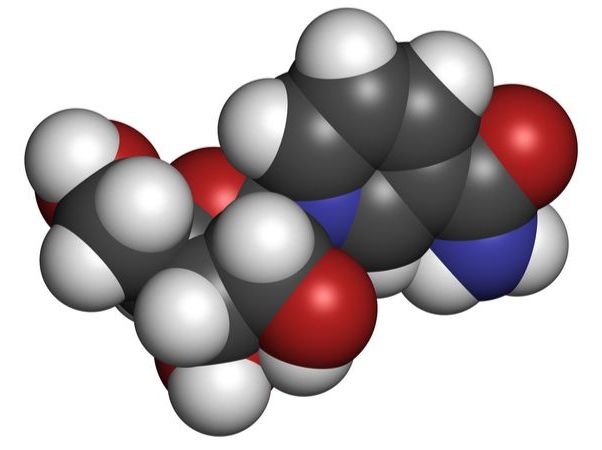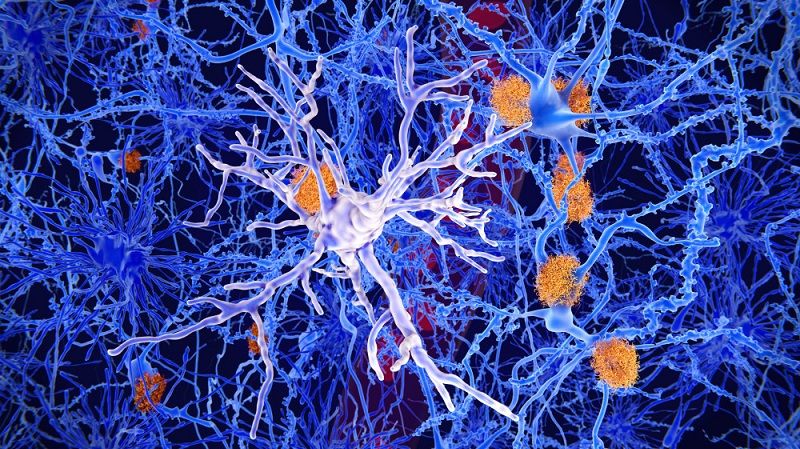Category: life extension – Page 509

Clinicial Trial of Nicotinamide Riboside Completed
Today, we want to highlight a recent human trial of the popular supplement nicotinamide riboside, a compound that has been shown in mice to restore NAD+ levels. The compound has had impressive results against some aspects of aging in mouse studies, and there is now some more data for NR in humans [1].
What is nicotinamide riboside?
Nicotinamide adenine dinucleotide (NAD+) is a chemical that facilitates the production of energy from sugar and is present in every cell in our body. As well as being important in energy production, it is also involved in DNA repair, cellular signaling, and many other cell functions.


Regenerative Medicine: Fat-derived Stem Cells — Medical Frontiers-JAPAN Live & Programs
This 2-part series on “Regenerative Medicine” shows how it is possible to replace lost or damaged body parts by using human cells. Surviving a disease such as cancer can leave scars, both physical and emotional. Whether it’s due to a mastectomy or radiation therapy, scars are hard to avoid. Fat-derived stem cells can help patients return close to their original state, providing peace of mind. We also look at the benefits of using oil to balance the amount of fat in a body.

Mesenchymal stem cells: a new trend for cell therapy
Mesenchymal stem cells (MSCs), the major stem cells for cell therapy, have been used in the clinic for approximately 10 years. From animal models to clinical trials, MSCs have afforded promise in the treatment of numerous diseases, mainly tissue injury and immune disorders. In this review, we summarize the recent opinions on methods, timing and cell sources for MSC administration in clinical applications, and provide an overview of mechanisms that are significant in MSC-mediated therapies. Although MSCs for cell therapy have been shown to be safe and effective, there are still challenges that need to be tackled before their wide application in the clinic.
Keywords: mesenchymal stem cell, cell therapy, tissue injury, degenerative disease, immune disorder, graft-versus-host disease, immunomodulation, trophic factor.
Stem cells are unspecialized cells with the ability to renew themselves for long periods without significant changes in their general properties. They can differentiate into various specialized cell types under certain physiological or experimental conditions. Cell therapy is a sub-type of regenerative medicine. Cell therapy based on stem cells describes the process of introducing stem cells into tissue to treat a disease with or without the addition of gene therapy. Hematopoietic stem cells (HSCs) have been widely used for allogeneic cell therapy. The successful isolation of pluripotent embryonic stem (ES) cells from the inner cell mass of early embryos has provided a powerful tool for biological research. ES cells can give rise to almost all cell lineages and are the most promising cells for regenerative medicine.
Aging Well – Aubrey de Grey, PhD, Co-founder of SENS Research Foundation – Taking the Fight to An… — YouTube
In this podcast, Aubrey de Grey, Ph.D., and the Chief Science Officer/Co-founder of SENS Research Foundation discusses his fascination with aging and his ongoing efforts to change the way we think about, and treat, age-related conditions. Dr. de Grey is a biomedical gerontologist and the innovative developer of the SENS platform. He is a Fellow of the Gerontological Society of America and the American Aging Association. He received a Ph.D. in Biology from the prestigious University of Cambridge. Dr. de Grey states that aging is the greatest medical problem we face as it causes the most suffering. He discusses the various excuses that are given as reason to simply disregard aging as a field in need of greater research, from the standard, ‘everything ages, just accept it,’ to the more philosophical—‘death, by its existence, gives meaning to life,’ and the social excuse—‘treating aging in a new way would only create new problems that could be much worse.’ But according to Dr. de Gray, not a single excuse holds up, all fall to the slightest scrutiny when really considered. Dr. de Grey explains that in order to design and implement therapies that will prevent the health problems of an aging population, we need to learn from what has already been proven and acknowledged in the past. SENS Research Foundation seeks to develop and promote access to innovative new therapies that can cure or possibly even prevent the diseases and difficult, troubling disabilities of aging by repairing built-up damage in our bodies. Wrapping up, Dr. de Grey explains cell therapy and damage, loss of cells, and the processes needed to bring about the repair. And the doctor goes into detail regarding the injection of stem cells to repair the damage, replace lost cells, etc.

Compound with anti-aging effects passes human trial
Urolithin A, a metabolite of biomolecules found in pomegranates and other fruits, could help slow certain aging processes. EPFL spin-off Amazentis, in conjunction with EPFL and the Swiss Institute of Bioinformatics, has published a paper Metabolism outlining the results of their clinical trial.
It is a fact of life that skeletal muscles begin to lose strength and mass once a person reaches the age of 50. A recent clinical trial involving two EPFL entities — spin-off Amazentis and the Laboratory of Integrative Systems Physiology (LISP) — showed that urolithin A, a compound derived from biomolecules found in fruits such as pomegranates, could slow down this process by improving the functioning of mitochondria — the cells’ powerhouses. A joint paper presenting the results of the trial also demonstrates that ingesting the compound poses no risk to human health.
Slowing mitochondrial aging.
Treating patients with gene therapies
Liz Parrish, BioViva Sciences Inc CEO, chats with James Strole, Director of the Coalition for Radical Life Extension, about what she’s bringing to RAADfest 2019: gene therapies as regenerative treatments on human patients.
Hear what she has to share, and meet her at RAADfest 2019, October 3–6, Las Vegas, NV.
For more info and to register: http://www.raadfest.com/

Regenerage International, IIMET, and Bioquark Inc. to Collaborate on Clinical Study in Biologic Age Reversal of Photodamaged Skin
https://www.prweb.com/releases/regenerage_international_iime…449142.htm

Astrocyte Senescence Leads to Neurotoxicity
In a recent study, a group of researchers from Hebrew University-Hadassah Medical School, Feinberg School of Medicine, and Tel Aviv University examined astrocytes in mice and found that these cells exhibited a senescent phenotype that led to neurodegeneration and neurotoxicity [1].
Age-dependent increase in senescent astrocytes adjacent to Aβ plaques
Cellular senescence, discovered in 1961 by Leonard Hayflick and Paul Moorhead, is a state in which cells no longer perform their functions, instead emitting harmful chemicals that turn other cells senescent… These cells are caused primarily by telomere shortening and DNA damage, they are known to contribute to many diseases, and this is not the first study that links them to neurodegeneration.